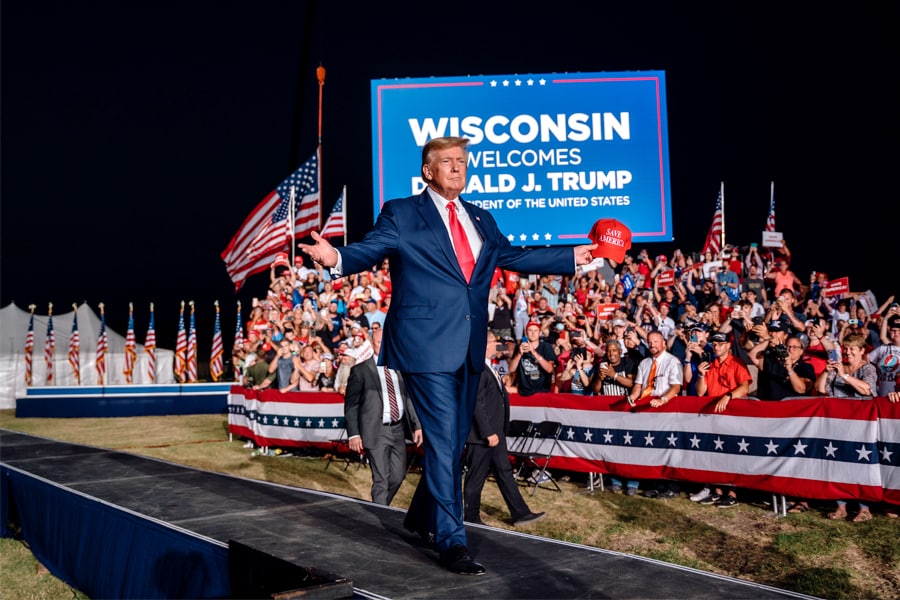
Trump home FBI raid pushes long conflict into public view
Former US President Donald Trump, who, in apparent contravention of the Presidential Records Act, had taken a trove of material, including sensitive documents, with him to his home at Mar-a-Lago when he left the White House
 Former President Donald Trump arrives before speaking at a rally in Waukesha, Wisconsin on Aug. 2, 2022. Trump has been considering an unusually early announcement for his expected third presidential campaign. (Jamie Kelter Davis/The New York Times)
Former President Donald Trump arrives before speaking at a rally in Waukesha, Wisconsin on Aug. 2, 2022. Trump has been considering an unusually early announcement for his expected third presidential campaign. (Jamie Kelter Davis/The New York Times)
The search carried out Monday by the FBI at former President Donald Trump’s Florida home, a law enforcement action with explosive legal and political implications, was the culmination of a lengthy conflict between a president proud of his disdain for rules and officials charged with protecting the nation’s records and secrets.
On one side were officials from the National Archives, which is responsible for making sure all presidential records are preserved according to the law, and the Justice Department, which some people familiar with the inquiry said had grown concerned about the whereabouts of possible classified information and whether Trump’s team was being fully forthcoming.
On the other was Trump, who, in apparent contravention of the Presidential Records Act, had taken a trove of material, including sensitive documents, with him to his home at Mar-a-Lago when he left the White House — and then, in the Justice Department’s view, had failed to fully comply with requests that he return the disputed material.
After the investigation bubbled along largely out of public view for months, word that agents had arrived early Monday at the gates of Mar-a-Lago with a search warrant raised new questions about Trump’s vulnerability to prosecution and fueled further partisan division.
Trump’s aides and allies intensified their criticism of the search Tuesday, calling it unnecessary and asserting, without citing any evidence, that it was a brazen use of prosecutorial power for political purposes. On his social media site Tuesday, Trump cast the search as part of “a coordinated attack” that also includes local and state prosecutors, alluding to investigations into him being carried out in Georgia and New York.
©2019 New York Times News Service







